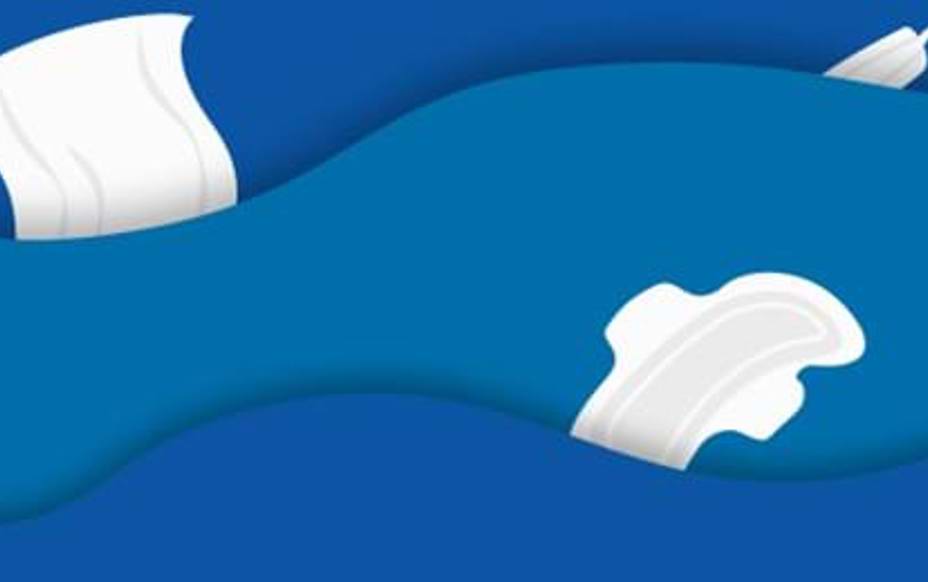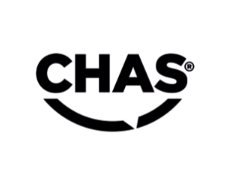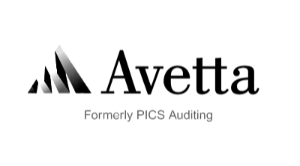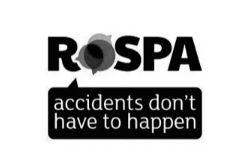phs Group has acquired Citron Hygiene UK find out more here
- Urgent action needed to stop water pollution and convert flushers into binners new report says
- New whitepaper reveals how to flush away a habit caused by period shame
A staggering 2.4 million* tampons are being flushed down toilets in the UK daily, leading to blocked sewers and environmental damage as a result of period shame, new research by phs Group reveals.
More than half of tampon users throw them down the toilet every single day of their period rather than binning them, according to a new whitepaper from the leading sanitary services provider in the UK and Ireland.
The reasons behind flushing is rooted in shame; two in five (41%) feel the need to hide that they are on their periods, with a quarter (24%) of participants who had flushed tampons in the last two years choosing to do so because it was ‘less embarrassing’.
The habit is causing widespread plastic pollution in our waterways, or increasing the amount of waste sent to landfill. Tampons come wrapped in plastic, encased in plastic applicators, with plastic strings dangling from one end, and many even include a thin layer of plastic in the absorbent part. This means that the plastic flushed enda up in our sewers, waterways and even beaches.
The report is calling for urgent action to convert flushers into ‘binners’ to stop more than 300,000 sewer blockages** in the UK each year costing some £100m to repair while preventing environmental harm to rivers and waterways, which leads to on average 4.8 pieces of menstrual waste being found per 100m of beach cleaned.***
Other startling figures from phs’s behaviour change report which included a survey of 2,000 women, and 1,055 tampon users, reveal:
Over half (56%) of women who had flushed tampons in the last two years were unaware they should not be flushed, meaning two in five (44%) know they should not be flushed but do so anyway. More people think tampons should be flushed (20%) than for any other non-flushable item included in the survey, with older tampon users more likely to flush than younger ones.
More than half of tampon users who bin (54%) have learned not to flush tampons from friends and family, while only a quarter (25%) found out at school they were unflushable.
“The reasons for flushing tampons are complex:” said Clare Hughes commercial director at phs. “Our research shows us it isn’t as simple as knowing you shouldn’t flush; even when the knowledge that flushing isn’t the right thing to do, people are flushing anyway. Many feel like they need to hide their period, feel embarrassed to bin their period products or there might be a lack of adequate facilities.”
The survey highlights that the environment and facilities people experience can also influence their behaviour. In public bathrooms, those who flush tampons sometimes are most likely to do so if there is no bin in the bathroom (59%), no bin in the cubicle (57%), or when the bin is full (54%). People are also more likely to flush at home (41%) than at work (37%), either because they’re less likely to have a bin in the bathroom at home, or would be embarrassed to have tampons hanging around in the bin at home – pointing again to feelings of shame around their period.
Hygiene concerns about bins can also influence people to flush, with over half (51%) of those who flushed tampons in the last two years saying they did so because it is ‘more hygienic’.
phs is urging flushers to think carefully about their actions and encouraging period product manufacturers to provide them with the facts, make binning easy, and change entrenched habits and routines.
The whitepaper’s key recommendations for behaviour change include:
- Increase knowledge and shift attitudes – by making instructions on tampon boxes clear, relevant and impactful and by continuing to raise awareness of issues around period equality, and normalise conversations around periods.
- Change the environment – by providing sanitary bins and bags inside public cubicles, encouraging people to keep a bathroom bin with a lid at home, and optimising tampon packaging so that used products can be wrapped before disposal in bins.
- Disrupt habits and routine – by reaching people before they develop a flushing habit such as ensuring school children are taught how to dispose of tampons correctly.
Clare Hughes commercial director for phs, commented: “We have to come together to deal with these issues immediately, for the sake of everyone experiencing their period, as well as our waterways, rivers and beaches. We are committed to working with period product manufacturers, governments, and schools to improve knowledge and education on this issue. Beyond anything, it is imperative that we continue to break down the barriers and stigma around periods. Nobody should be feeling shame or embarrassment about a monthly bodily function in 2022.”
As part of the whitepaper, phs also outlined a series of commitments it would make to ensure a tangible impact on flushing behaviour is made, which will include working with stakeholders to provide alternatives in washrooms across the country.
Martha Silcott, founder of sustainably sourced disposal bag Fab Little Bag, said: “The research tells us that flushing behaviour can be changed if the conditions are right. Every office, hotel, restaurant, school and university can make a significant positive contribution to stopping the environmental pollution caused by flushing period products. This research shows us how best to do this, and we urge organisations to step away from this culture of whispering around periods, and have open conversations about binning products and identify the improvements that work best for them, their people and the environment.”
The Reality About Flushing Tampons: What You Need to Know
When it comes to menstrual product disposal, there's a lot of confusion and misinformation out there. One of the most common questions we encounter is: can you flush used tampons? It's a quick and seemingly convenient disposal method, but the reality is not so straightforward.
Why Flushing Tampons is a Bad Idea
Plumbing Problems
First and foremost, flushing tampons can cause significant plumbing issues. Unlike toilet paper, which is designed to disintegrate quickly in water, tampons are made to expand and absorb. This means they can easily get caught in your home's plumbing, leading to costly plumbing blockages and repairs.
Environmental Concerns
From an environmental standpoint, flushing tampons is also problematic. They can contribute to sewer overflows and can end up in rivers, oceans, and beaches, posing a threat to wildlife and ecosystems.
Delving Deeper: The Surprising Impact of Flushing Tampons on Sewage Systems
It's a scenario that's all too common: A tampon is flushed, it disappears down the drain, and it's out of sight and out of mind. But what happens next is a journey that can have far-reaching consequences for our municipal sewage systems.
The infrastructure of sewage systems worldwide is engineered to handle human waste and toilet paper, which break down relatively quickly in water. However, tampons are designed to do the opposite; they are engineered to expand and thus absorb liquid, which makes them a nemesis to the sewer system. Their sturdy composition prevents them from breaking down, causing them to become ensnared in the maze of pipes that lie beneath our cities.
When tampons accumulate in sewer systems, they create blockages that can disrupt the flow of sewage, leading to overflows. These overflows can cause untreated sewage to spill into natural waterways, which is a health hazard for both humans and marine life. Moreover, the presence of these products in our sewers can also lead to backups in residential areas, resulting in sewage spills inside homes, which can be both distressing and costly to address.
Public sewer lines are not the only ones affected. Water treatment facilities face significant challenges when tampons make their way through sewage treatment system to their doors. These facilities are equipped to filter and treat biological waste, but non-biodegradable items like tampons can clog screens and disrupt machinery, leading to operational inefficiencies and increased maintenance costs.
The economic impact is considerable. Cities spend millions each year dealing with the repercussions of improper disposal of tampons and other non-flushable items. These costs are often passed on to taxpayers and can lead to higher utility bills.
Responsible Tampon Disposal: A Guide
Given the significant impact that flushing tampons can have, it's clear that alternative disposal methods are not just a suggestion; they're a necessity.
The safest method for disposing of tampons is to simply toss them into the trash. This might seem straightforward, but it’s a practice that's often overlooked due to misconceptions about convenience and hygiene. Proper disposal can prevent damage to the sewage system and save money in long-term infrastructure and repair costs and environmental costs.
To make disposal menstrual hygiene products easier and more sanitary, it's advisable to wrap the tampon in toilet paper or its original wrapper before placing it in the bin. For those concerned about odors or visibility, scented small bags or specialized menstrual product disposal bags are available, which can contain and conceal the product effectively.
Preparedness: The Key to Proper Disposal
Preparation is the ally of discretion feminine hygiene products and cleanliness when it comes to tampon disposal. Carrying small sealable bags or investing in menstrual product disposal bags, which are often biodegradable and scented to mask odors, can make all the difference in managing your period discreetly and responsibly, no matter where you are.
Being equipped with the right disposal tools not only ensures that you're not contributing to the larger problem of sewage system damage but also empowers you to manage your menstrual care on-the-go with confidence and ease. Whether at home, at work, or in public spaces, having a plan for disposal can alleviate any worries about handling your period discreetly and responsibly.
By encouraging a dialogue about proper tampon disposal and the consequences of flushing these products, we can foster a collective responsibility towards our shared infrastructure and environment. It's not just about avoiding plumbing issues; it's about protecting our waterways, preserving our environment, and ensuring the operational integrity of our sewage systems for generations to come.
Alternatives to Traditional Tampons
If the environmental impact is a concern for you, consider exploring alternatives to traditional tampons. Products like menstrual cups, reusable cloth pads, or organic tampons that are biodegradable may offer more sustainable options without sacrificing convenience or comfort.
Menstrual Cups
Menstrual cups are a popular alternative that can be washed and reused, significantly reducing waste over time.
Reusable Cloth Pads
Similarly, reusable cloth pads are an eco-friendly alternative that can be washed and used again.
Organic and Biodegradable Tampons
For those who prefer tampons, organic and biodegradable options exist that can lessen the environmental footprint of your period products.
Final Thoughts: Making Informed Choices
Understanding the implications of flushing tampons is crucial for both our personal plumbing and the broader environment. By making informed choices about how we dispose of menstrual products, we can protect our homes, communities, and the planet.
Your Questions Answered
Still have questions? Here are some quick answers to common queries:
-
Can you flush tampons down the toilet? No, it's not safe for your plumbing or the environment.
-
What should you do with a used tampon? Dispose of it in the trash using a bag or wrapper.
-
Are there eco-friendly tampon alternatives? Yes, menstrual cups, reusable cloth pads, and biodegradable tampons are great options.
By spreading awareness and promoting responsible disposal habits, we can reduce the negative impact on our plumbing systems and the environment. Remember, when in doubt, don't flush it out.


































